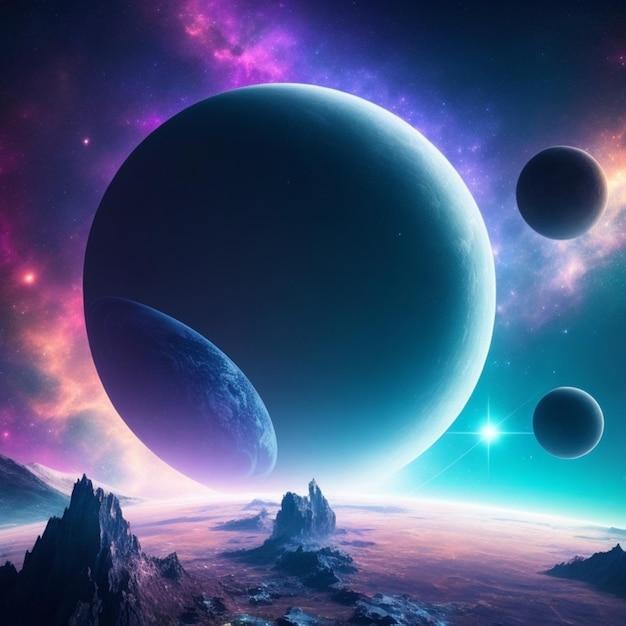Introduction:
Do you ever look up at the night sky and wonder about the fascinating stories behind the names of planets? Well, you’re in for a treat! In this blog post, we’re going to delve into the realm of Roman mythology and explore the planet named after the Roman god of war. Not only that, but we’ll also discover the roles of different gods in ruling our celestial neighbors and uncover intriguing facts about the planets in our solar system. So, if you’re ready to embark on a journey through ancient tales and astronomical wonders, let’s dive right in!
Welcome to our cosmic exploration!

What planet is named after the Roman god of war?
The Red Planet: Mars
Mars, the fourth planet from the sun, is famously known as the Red Planet. But did you know that this fiery nickname comes from its association with the Roman god of war? Let’s dive into the fascinating story behind why this celestial body got its warlike name.
A Fiery Roman God
In Roman mythology, Mars was the god of war, representing power, bravery, and military prowess. The Romans believed that Mars was their protector and guardian, inspiring them in battle and ensuring their victory. With such an important role in the ancient world, it’s no wonder that his name lives on through the planet we now know as Mars.
The Connection to Mars
The ancient Romans named the planet Mars because of its striking red appearance. This hue is due to iron oxide, or rust, covering the planet’s surface, giving it a reddish glow when viewed from Earth. The Romans associated this vivid color with bloodshed and warfare, aligning perfectly with the god Mars and his fiery persona.
Other Planets and in Roman Mythology
To further expand your mythological knowledge, it’s interesting to note that the other planets in our solar system also draw their names from Roman mythology. For example, Venus is named after the goddess of love and beauty, Mercury after the messenger of the gods, and Jupiter after the king of the gods. It seems the Romans had a penchant for celestial nomenclature rooted in their rich mythological beliefs.
A Celestial Playground for Explorers
Fast forward to the 21st century, and Mars continues to captivate the human imagination. With multiple successful missions to the planet, scientists and space agencies have been exploring Mars for years, seeking to unlock its secrets and uncover the potential for human colonization. From rovers like Curiosity and Perseverance to planned manned missions, Mars remains a tantalizing target for space exploration.
So, the answer to the question “What planet is named after the Roman god of war?” is Mars. This planet’s connection to the Roman god Mars has left an indelible mark on both history and astronomy. Whether you’re marveling at its reddish glow from Earth or following the latest discoveries on the Martian surface, Mars continues to ignite our curiosity and remind us of the powerful influence of ancient mythology in our modern world.

FAQ: What planet is named after the Roman god of war?
Welcome to our FAQ section! Here you’ll find answers to all your burning questions about planets and Roman gods. We’ve gathered some of the most frequently asked questions about the planet named after the Roman god of war, along with a few extra tidbits. Prepare to have your curiosity satisfied!
Which gods rule the planets
The planets in our solar system have a divine lineup! Each one is named after a Roman god or goddess. Let’s take a quick look at who rules which planet:
- Mercury: Named after the speedy messenger god, Mercury.
- Venus: Named after the goddess of love and beauty, Venus.
- Earth: No Roman god, but we’re fond of this pale blue dot.
- Mars: Named after the Roman god of war, Mars.
- Jupiter: Named after the king of the gods, Jupiter.
- Saturn: Named after the god of agriculture and time, Saturn.
- Uranus: Named after the god of the sky, Uranus.
- Neptune: Named after the god of the sea, Neptune.
- Pluto: Not a planet anymore (sorry, little guy).
What planet is the god of war
Ah, here’s where the cosmic battle commences! The planet that bears the name of the Roman god of war is Mars. Known for its striking reddish appearance, Mars has been captivating stargazers for centuries. Not only is it the fourth planet from the Sun, but it’s also a celestial reminder of the bloodthirsty deity Mars.
What planet is named after the Roman god of war
Now we’re getting specific! The planet that is directly named after the Roman god of war is indeed Mars. A perfect match, wouldn’t you say? What better way to honor the fearsome god than by naming a fiery red planet after him? Mars, the celestial embodiment of martial power, inspires wonder and imagination.
What was the first planet named
The first planet to receive a name wasn’t actually a planet at all. It was our very own planet Earth! While the other planets had to wait for their divine titles, our humble abode got its name from an Old English and Germanic word meaning “ground” or “soil.” So, Earth bagged the first named planet award, no contest!
What god rules Mars
Since we’re talking about Mars, it’s only fair to introduce you to its ruling deity. Mars, the planet of war and military might, is governed by none other than Mars himself! In Roman mythology, Mars was the god of war, a fierce and fearsome figure known for his strategic prowess and love for combat. So, if you ever find yourself on Mars, remember to mind your manners!
Which god controls the moon
When it comes to Earth’s very own moon, the Roman goddess of the hunt and the moon, Diana (or Artemis in Greek mythology), takes the reins. This lunar queen was not just an expert archer, but also the guardian of all things related to the moon. So, it’s Diana who keeps an eye on our lovely satellite and ensures it shines its brightest.
That’s all for our FAQ section! We hope you’ve found the answers you were seeking and that it has sparked a sense of wonder about our extraordinary solar system. If you have more questions, feel free to shoot them our way. We’re here to enlighten, entertain, and make your curiosity soar through the cosmos!
